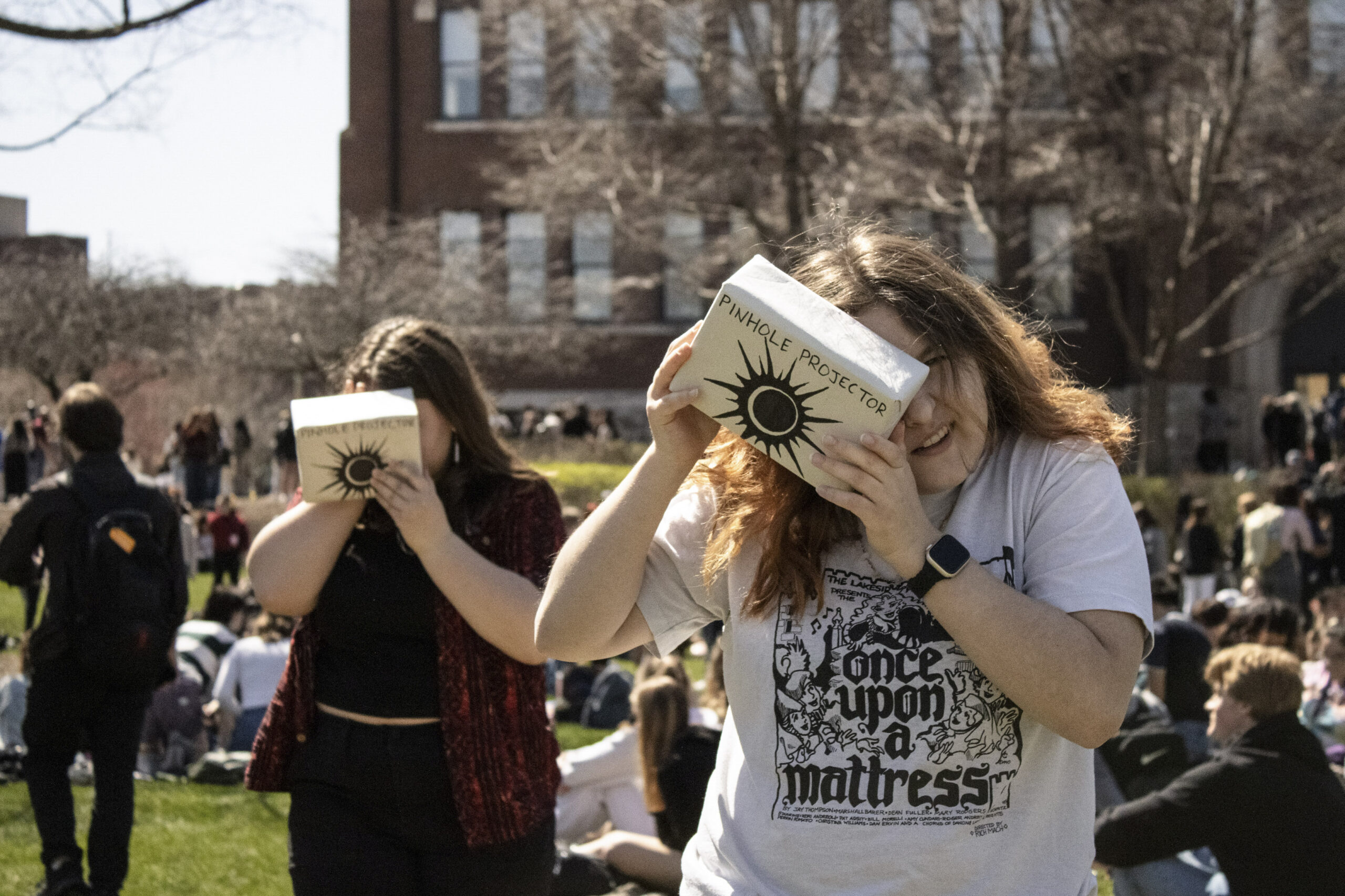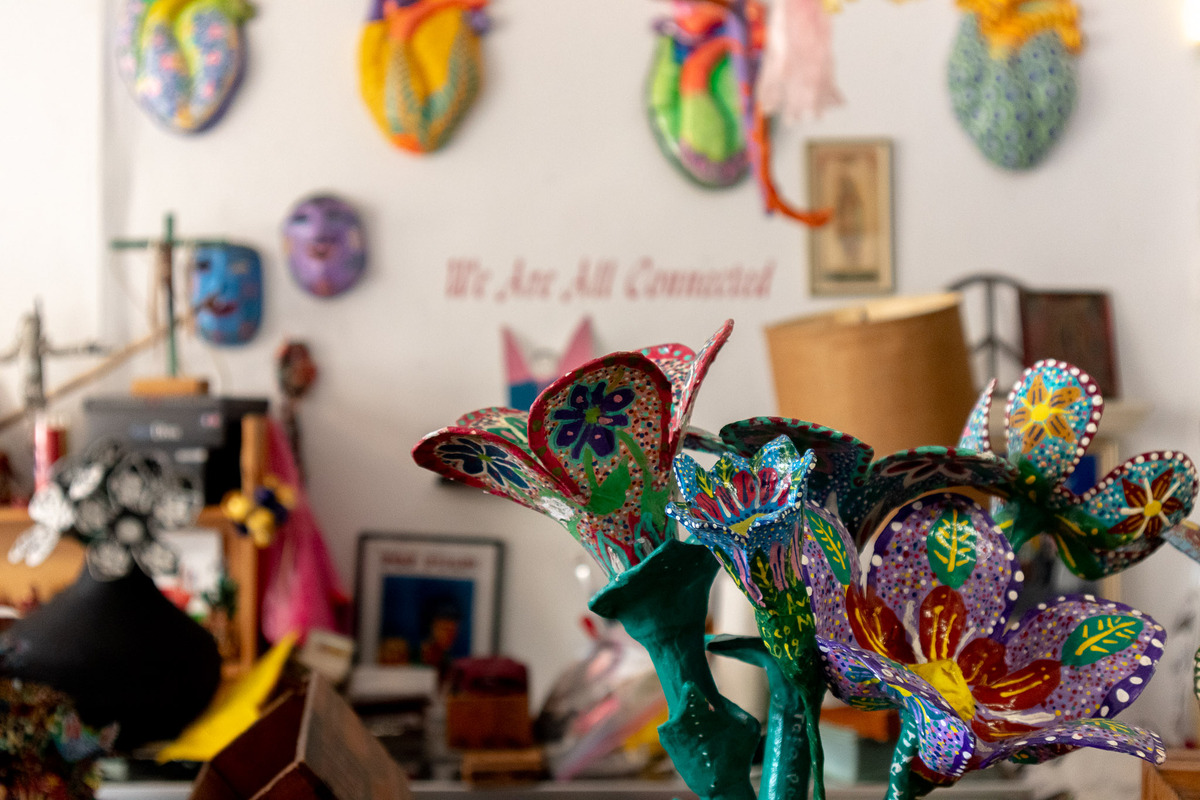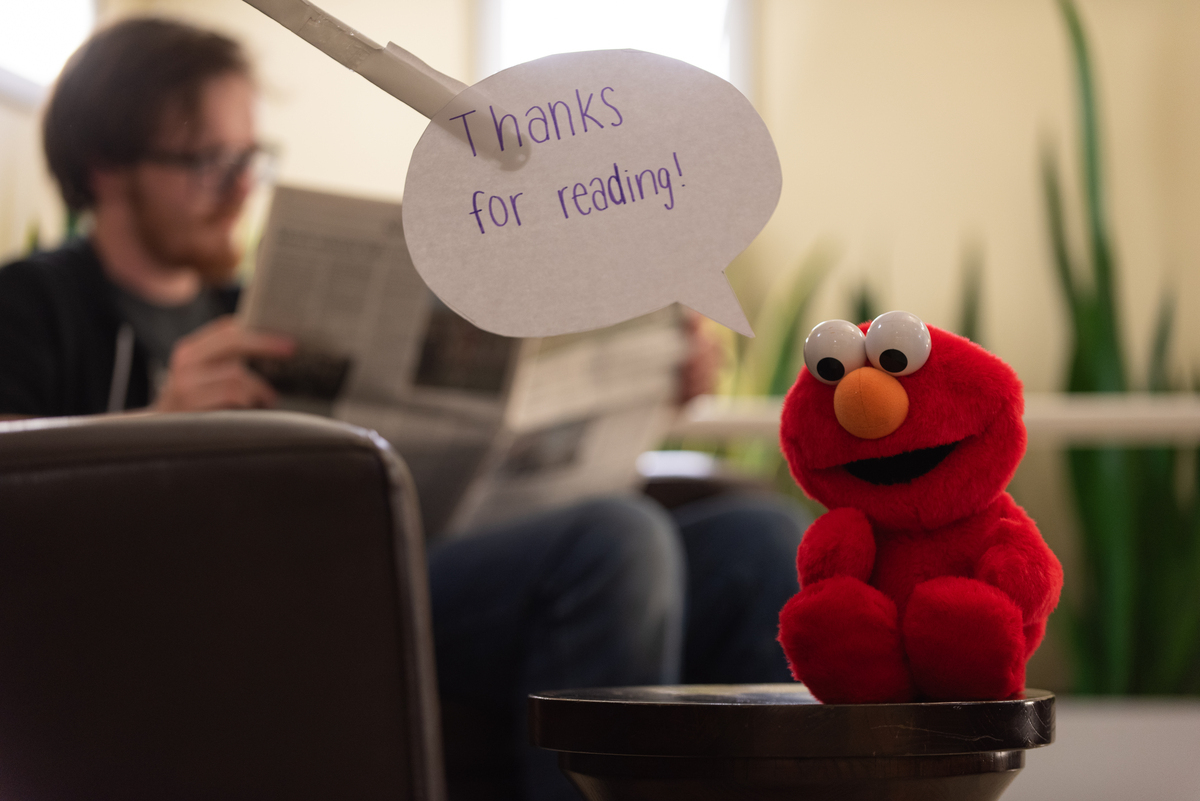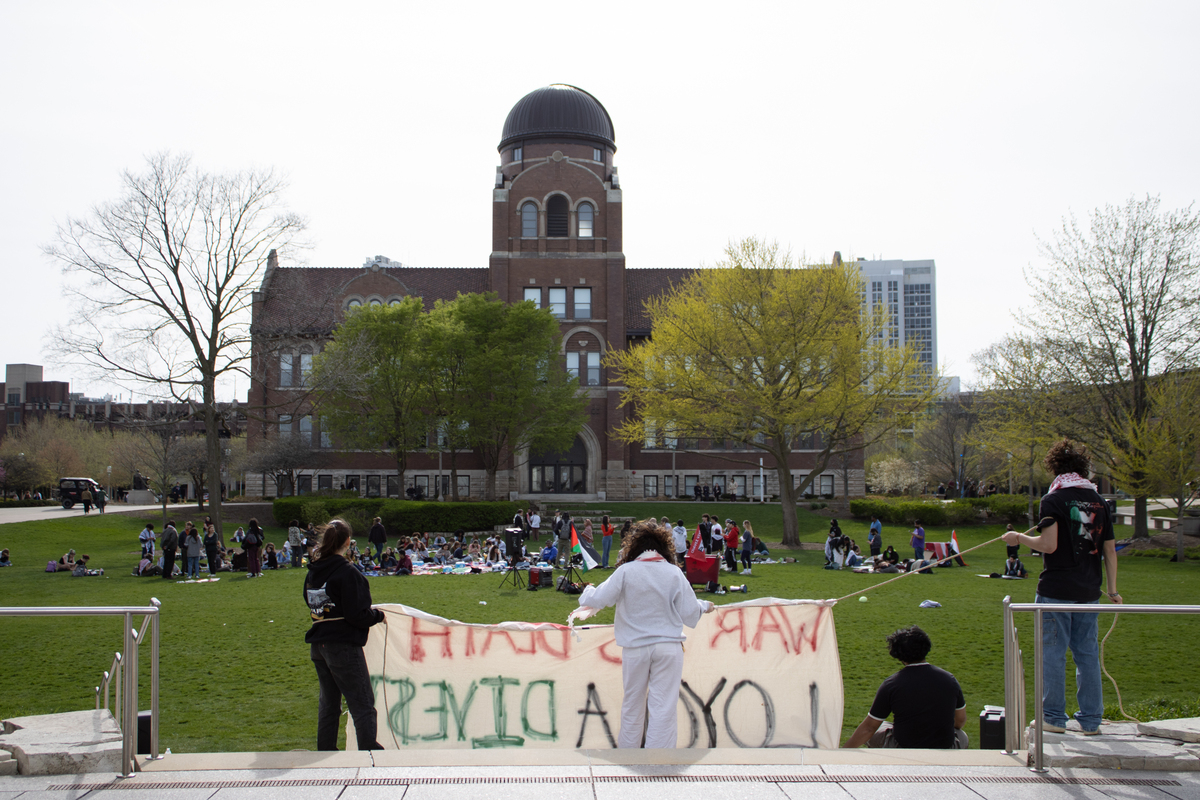Jacob and Hashmi, both 19-year-olds at Loyola, laughed as they recounted their first taping session at Hashmi’s apartment.
‘Hum Saath’ Podcast Speaks Up About Feeling Down

When Kristen Jacob and Mohiy Hashmi began their mental health podcast “Hum Saath” in September, they didn’t know how to use a microphone.
Jacob and Hashmi, both 19-year-olds at Loyola, laughed as they recounted their first taping session at Hashmi’s apartment. They couldn’t work a camera, the microphone wasn’t picking up sound and they had to record four separate times — keeping them up past midnight.
Now, with three episodes, a move to WLUW’s recording studio and nearly 500 followers on Instagram, the duo said people across campus have approached them, expressing resonance with the podcast’s conversations about mental health.
“Mohiy and I are both yappers,” Jacob said. “We talk way too much, we both were super passionate about this topic. We think mental health is not talked about enough, especially in the South Asian community, so that’s why we were like, ‘What if we just start a podcast?’”
Hum saath means “us together” in Hindi and Urdu, according to Hashmi. Jacob and Hashmi, both second-years who identify as South Asian, said the podcast has a South Asian focus but is meant to help anyone.
In Episode 1, released Nov. 18, the co-hosts discuss the “mid-semester slump,” a time when many students lack motivation. Jacob recalled her own experience with seasonal depression. She said taking walks and journaling helped ease her mind.
Mental health in the South Asian American community is often swept under the rug or treated as taboo, the co-hosts said in an interview.
“It’s not just the household that I grew up in,” Jacob said. “A lot of the community members that I’ve grown up with also felt it very difficult to open up to their parents about stuff like this.”
Almost 20% of South Asian individuals in the U.S. report having mood or anxiety disorders, according to the journal Cultural Diversity and Ethnic Minority Psychology. A 2016 study reported young South Asian Americans perceive mental illness as a negative trait more than their white counterparts, according to the journal Psychology, Health & Medicine.

“It’s almost like you’re living in this world where it feels like you’re the outcast, and I just want people in our community to know that’s not true,” Jacob said.
Shreya Seetharam, a third-year molecular biology student, said they hadn’t listened to the podcast but commended the co-hosts for taking the initiative.
Seetharam, 21, said they tried the short-term counseling offered by the Wellness Center. While their reasons for seeking help weren’t related to culture, they said they felt there was a lack of understanding about their Indian background and how it affected their mental health.
David deBoer, director of counseling at the Wellness Center, said he acknowledged the center can’t offer everything every student needs but still tries to be inclusive and representative of the student body. He said the Wellness Center has two South Asian-identified therapists on staff.
Seetharam said factors like immigration restrictions — including the Immigration Acts of 1917 and 1924 — and the model minority myth impact South Asian Americans’ relationship with mental health. The Immigration Act of 1917 instituted a literacy test for migrants over 16 years old and restricted entry from anyone in the “Asiatic Barred Zone,” which included India, while the Immigration Act of 1924 excluded all immigrants from Asia, according to the U.S. Department of State.
“It’s cool that the podcast exists and people are willing to talk about mental health more openly,” Seetharam said. “But I also think it’s important to realize the place of relative privilege that a lot of South Asian Americans come from because of the selection of skilled, educated, more affluent immigrants to the U.S.”
Though “Hum Saath” handles heavy topics, the co-hosts’ banter and playful tone soften its contemplative matter. The chatter is often punctuated with standard Generation Z humor — soundbites of Jeopardy music, cricket sounds and “Spongebob Squarepants” time jumps.

“It sounds like a self-help podcast, but it’s not really like that,” Jacob said. “It’s more of a conversation.”
For Episode 2, released Dec. 19, the co-hosts brought on Ria Trehan, president of Loyola’s chapter of We Are SAATH — a non-profit organization providing mental health resources for South Asian Americans. The trio discussed burnout, comparing oneself to others and family pressure.
Trehan, a fourth-year, helped roll out the Mindfulness App Initiative of the Student Government of Loyola Chicago which offered students free subscriptions to the mental health and wellness app Headspace.
“A lot of South Asians, especially in college, struggle with their mental health,” Trehan said. “It’s something I was aware of, but it didn’t really come to light until I got to college.”
Jacob said she was happily surprised by Loyola’s mental health resources, including the Headspace app and the Wellness Center, but South Asian students face unique pressures, which is where “Hum Saath” comes in.
“I never had that kind of outlet or something to listen to like that,” Hashmi said about the podcast. “I think, as sappy as it sounds, being that for other people was a very cool idea.”
“Hum Saath” is available to stream on Spotify and YouTube.
Featured photo by Max Bates / The Phoenix










